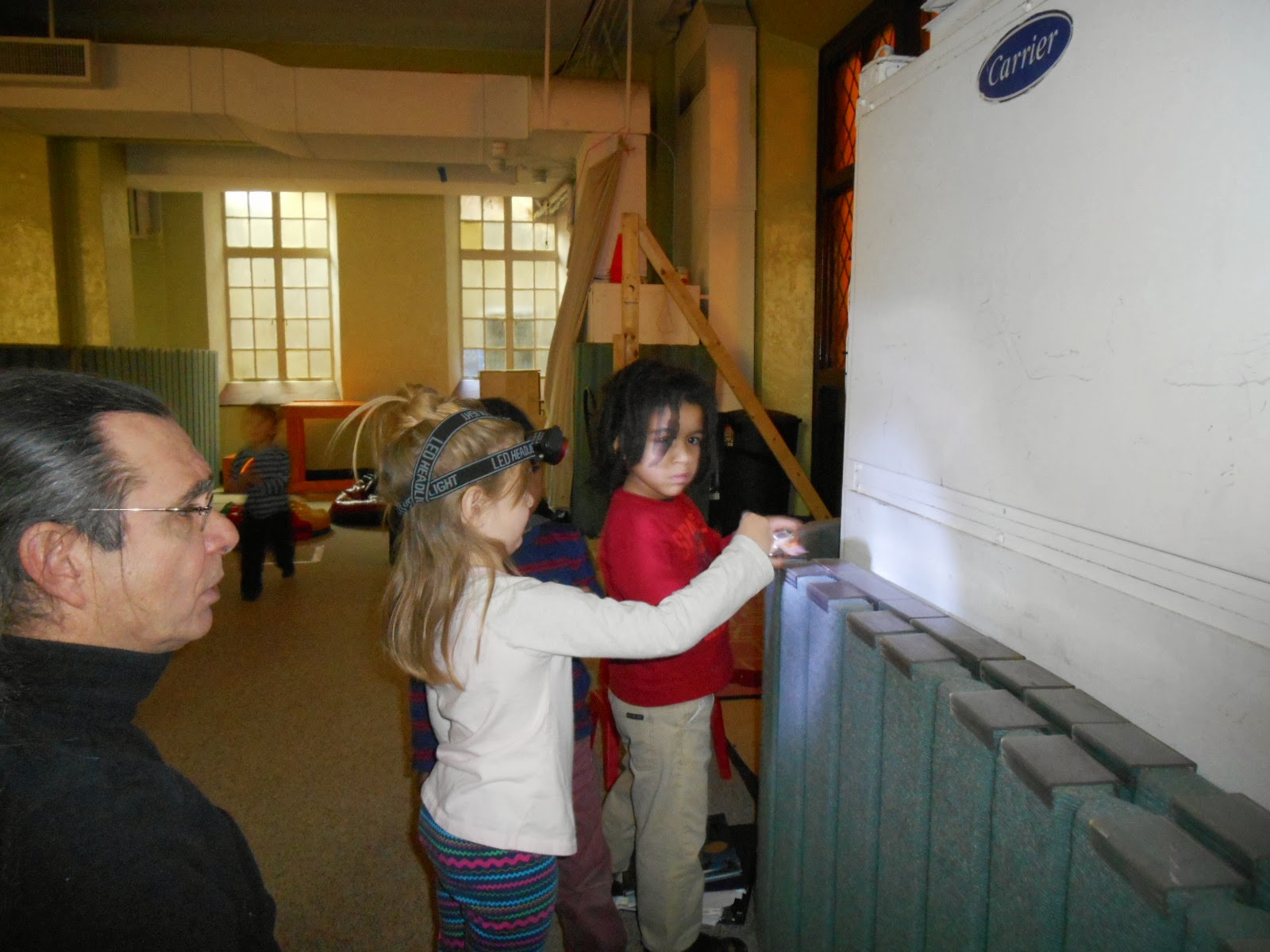For example in Blackout, there is a family using electricity after dark while watching TV, talking on the phone, cooking, and working on the computer. The little sister turns off the TV and wants to play a game with her big sister, her Mom, or her dad. They are all too busy to play with her. Then the lights go out all over the city. Mom finds flashlights for all. They make shadow puppets on the wall, they go to the party on the roof and have hot dogs, they go down to the street and get free ice cream and play in the hydrant the fireman opens. Then the lights come on and everyone goes back to the solitary activities they were doing before. The little sister decides it is more fun with the lights off and the family turns off the lights and plays the game together.
And what are some of the skills and strengths the children gain from all this rich pretend play? In dramatic play children's language flourishes. They speak in advanced "story book" talk using language that is way outside of their daily stock of words and phrases. When children pretend, they have to remember the story and their previous experiences and recreate them in a dynamic way. "For example, to play the role of a doctor, children have to remember what tools a doctor uses, how a doctor examines a patient, and what a doctor says," (Creative Curriculum) In dramatic play children learn cooperation and problem solving. They must share ideas and negotiate with the ideas of others. As they negotiate with others and with the constraints of the story itself, children are also learning to delay gratification, work towards a larger goal and control their impulses. Now doesn't that make your child crawling around with a head lamp, yelling, "Get back here you rascal lions!" look totally different to you?
 In Last Night at the Zoo, we were all animals who snuck out of the zoo at night, took the bus to a restaurant, then went to a dance club, out for ice cream and back to the zoo before dawn.
In Last Night at the Zoo, we were all animals who snuck out of the zoo at night, took the bus to a restaurant, then went to a dance club, out for ice cream and back to the zoo before dawn.
 |
| The garbage workers eating breakfast before work. |
 |
| Lucy is eating with a spoon from her plate. |






